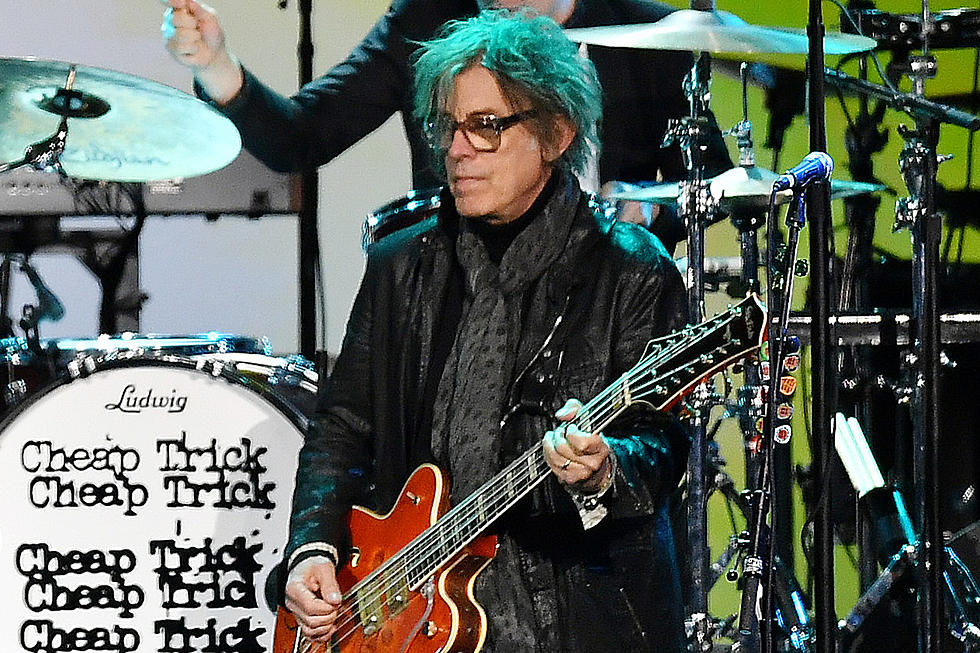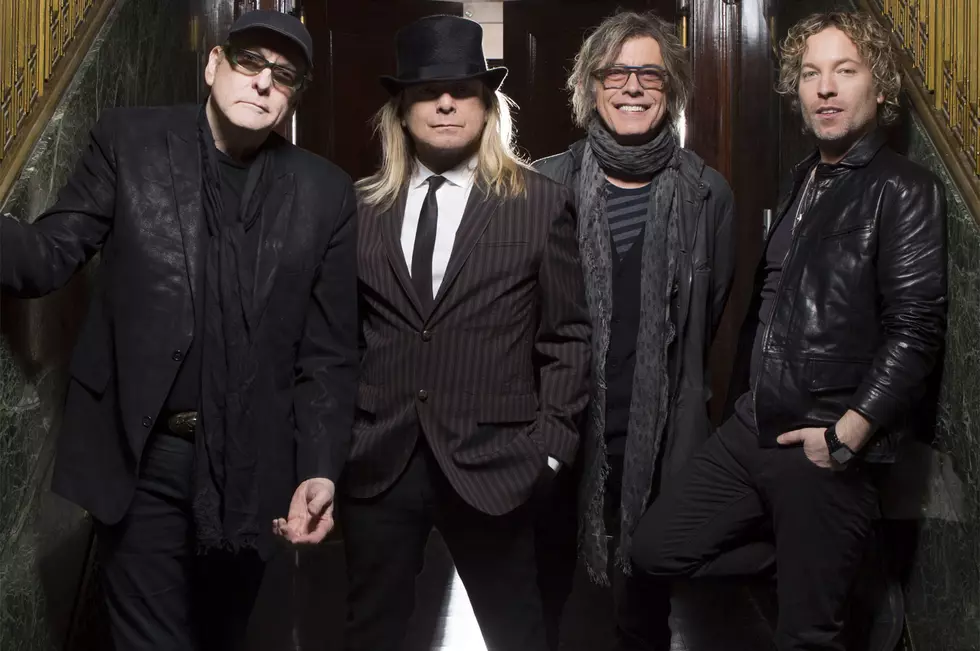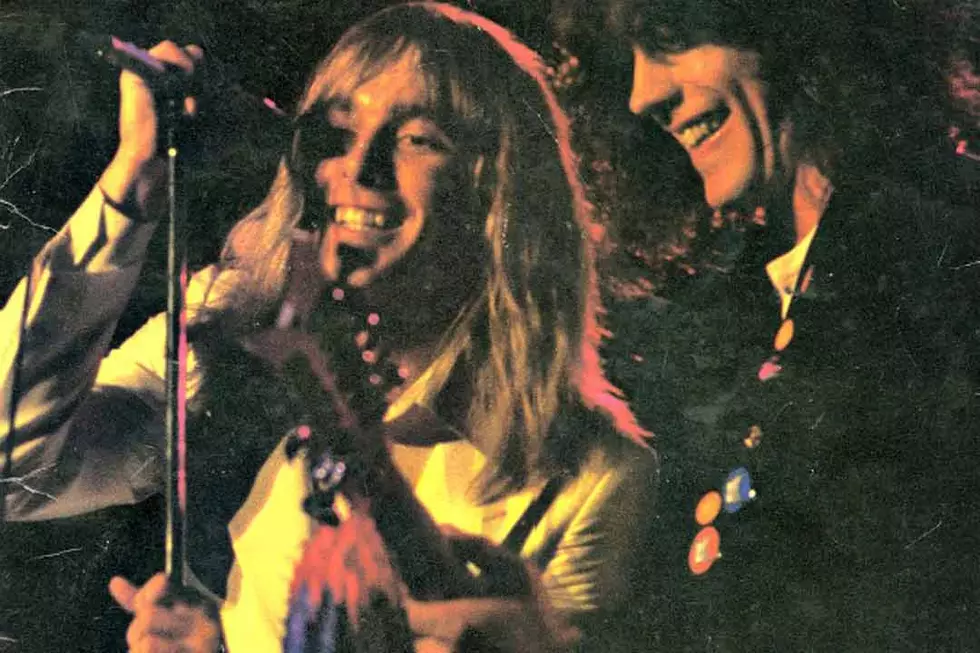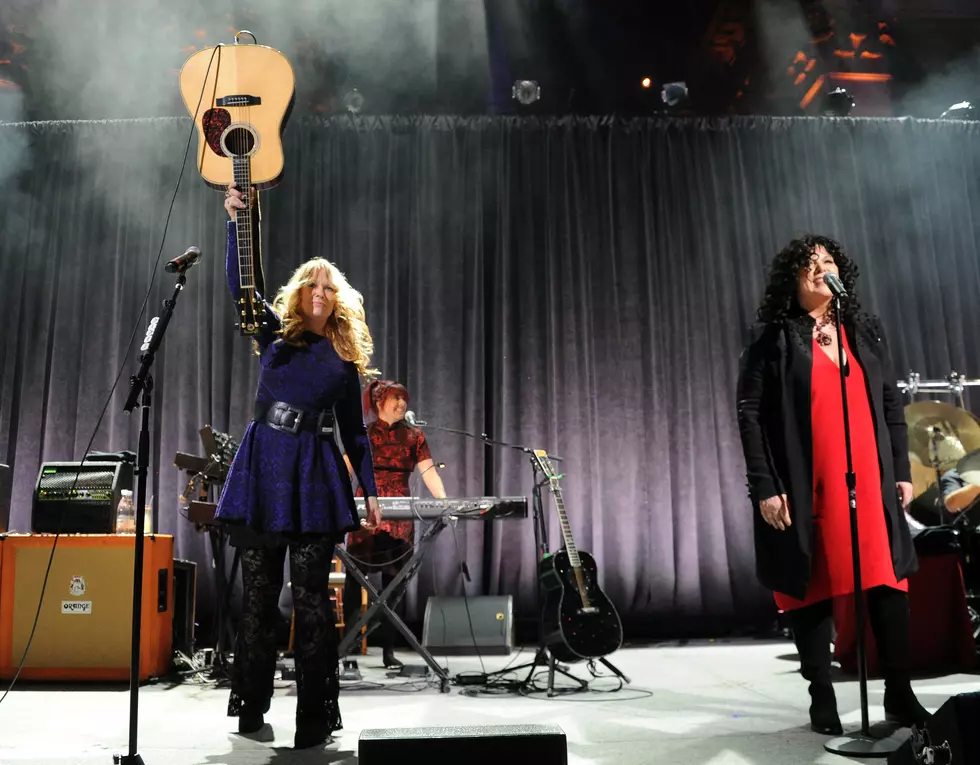36 Years Ago: Cheap Trick’s ‘Dream Police’ Becomes a Belated Smash
By the time their fourth studio album Dream Police arrived in September of 1979, Cheap Trick had gone from cult following to mega-stardom -- all within a year.
Dream Police was recorded, wrapped up and ready to roll out in 1978 when a funny thing happened. Their record company decided to release the live album At Budokan in Japan due to their rabid fan base there, but stateside demands for the import grew so great that Epic took a gamble and issued it domestically. That live album was the big breakthrough the band had been waiting for and, seemingly overnight, everyone knew about Cheap Trick -- leaving Dream Police on the shelf.
Despite the delay, Dream Police was the instant, and perfect, follow-up to the band's new-found success. In many ways, Dream Police solidified every aspect of what Cheap Trick had been working towards since day one, and wove it all together into one perfectly simmered brew. The album's title cut opens things up, and is so full of energy, excitement and flat-out fun, it was (and still is) irresistible. With a simple one-two snare drum intro, things are off and running directly toward sheer jubilation.
"Lyrically, the song was about Big Brother watching you," Rick Nielsen said, in the liner notes of the remastered edition. The driving strings occupy a similar place, and apply a similar effect to the looping synth run on "Surrender," which was, in a way, a cop from the Who's "Baba O'Riley." Here, those strings build the dynamic tension as the song hurtles toward pop perfection. From the in-your-face power chord riff to Tom Petersson's surging bass lines, it is a tour de force -- with the a string-driven Who-like rave serving as icing on the cake. The song has remained a staple of every Cheap Trick show ever since, though when released as a the first single from the album, it failed to scale the mountain -- finishing only at No. 26.
Co-written by Nielsen and Robin Zander, "Way of the World" is one of the band's great lost songs. Before they began pulling it into live shows over the last few years, the song seemed all but forgotten. It's one of countless great rockers in the band's catalog. Again, the strings add a certain excitement here, just some nice coloring, never flooding the gate or weighing down the rock action at hand. As is so often the case, vocalist extraordinaire Zander shows off those pipes -- power and grace, truly one of the greatest singers in the history of rock and roll.
"The House Is Rockin' (With Domestic Problems)" is a rolling riff-rocker where Nielsen gets to step up front as the band's resident guitar hero. The circling riff alone makes this an instant classic, but add to that Bun E. Carlos' powerhouse drumming and some unexpected lyrics, and it's suddenly one of the album's highlights. The guitar breaks let Nielsen shine throughout, and by song's end he gets to quoting lines from the Beatles and Yardbirds, among others.
"Gonna Raise Hell" closes out side one in full-on drama mode. From the four-on-the-floor beat to the infectious bass line, the rhythm alone makes it come to life. Add in some nasty Nielsen guitar licks and Zander basically losing his mind during the song's "Mother" climax, and you have one epic piece. "Someone asked, 'Why was 'Gonna Raise Hell' a disco song?," Nielsen said in a 1980 radio interview. "I never thought of it as a disco song, but it does have that Detroit jungle beat." That non-stop groove pushes the song harder and drives in on. To this day, it remains a show stopper.
Side two kicks in with the classic Cheap Trick sounds of "I'll Be with You Tonight." It's a no-frills power pop item that dates back to 1974, with a big guitar hook that sets the scene. Everything falls into place from there. It's the Raspberries, the Move and the Beatles all rolled up into one perfect ball. Up next is "Voices," one of the Cheap Trick's best ballads ever. Strings appear again, this time for pretty ornamentation -- giving this recording the flavor of the Beatles or, if you like, ELO. Zander's vocal and a jangly guitar line make this sweet as can be. It's another one that should have been a huge hit, though it barely made it into the U.S. Top 40 when released as a single.
If the album has one throwaway, it would be "Writing on the Wall." Not that is is bad by any means -- it's a raving rocker -- but the autobiographical nature of the lyrics somewhat sells the song short. To drive home the "story-of" aspect of the song, they include voice-overs of concert introductions that just always seemed kind of corny. Musically, however, it's a killer. Next up is another highlight, "I Know What I Want." This one features Tom Petersson on lead vocals, and while there is no comparing his style to that of Zander's, he adds a distinct flavor to the song that Robin could never have done the same way. Written, as was the entire album, by Nielsen, this was custom-made for Tom. There is a punk attitude at play here that fits in snugly with the full-on rock action being delivered. It's a case here of less is more, with two chords in the verse, three in the chorus, a simple bridge then a kick-ass guitar break, and they're out.
Dream Police wraps up with another tour de force. "Need Your Love" first got an airing in the live context on Budokan, and while that version is certainly dynamic, the studio take is definitive. A slow-building groove, "Need Your Love" builds into a full-on monster as big chords, big vocals, powerhouse bass and absolutely rock-solid drumming come together to make for a song that still sends chills. Zander's vocals here veer from plaintive to snarling and back again. It's one of the band's heaviest songs, and they are more than up to the challenge. Rick's guitars are blazing throughout, and just when things seem about to come unhinged, they reel it all back in. Imagine the Beatles' "I Want You (She's So Heavy)" as played by the Yardbirds and you have the idea.
The album sold very well, achieving platinum status, thanks in part to the long coat tails behind Budokan. Dream Police finished at No. 6, making it the band's highest-charting studio album and, after At Budokan, their second highest-charting album overall. Over the years, the love for Dream Police has remained high among fans. In 2011, the band did several concerts, performing the album in its entirety, complete with orchestra.
See Cheap Trick and Other Rockers in the Top 100 Albums of the '70s
This Day in Rock History: September 21
More From 92.9 WBUF










